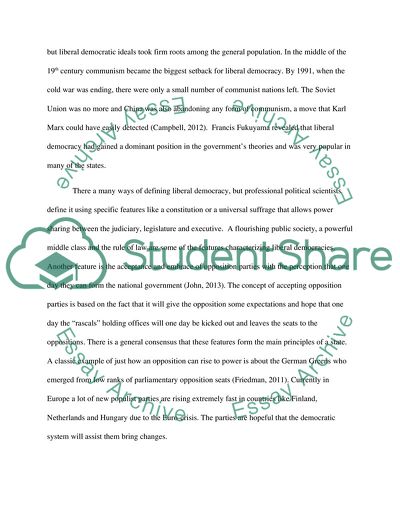Cite this document
(The Ideal Government System Essay Example | Topics and Well Written Essays - 3000 words, n.d.)
The Ideal Government System Essay Example | Topics and Well Written Essays - 3000 words. https://studentshare.org/politics/1853588-why-has-liberal-democracy-become-seen-by-so-many-as-the-ideal-system-of-government
The Ideal Government System Essay Example | Topics and Well Written Essays - 3000 words. https://studentshare.org/politics/1853588-why-has-liberal-democracy-become-seen-by-so-many-as-the-ideal-system-of-government
(The Ideal Government System Essay Example | Topics and Well Written Essays - 3000 Words)
The Ideal Government System Essay Example | Topics and Well Written Essays - 3000 Words. https://studentshare.org/politics/1853588-why-has-liberal-democracy-become-seen-by-so-many-as-the-ideal-system-of-government.
The Ideal Government System Essay Example | Topics and Well Written Essays - 3000 Words. https://studentshare.org/politics/1853588-why-has-liberal-democracy-become-seen-by-so-many-as-the-ideal-system-of-government.
“The Ideal Government System Essay Example | Topics and Well Written Essays - 3000 Words”. https://studentshare.org/politics/1853588-why-has-liberal-democracy-become-seen-by-so-many-as-the-ideal-system-of-government.


